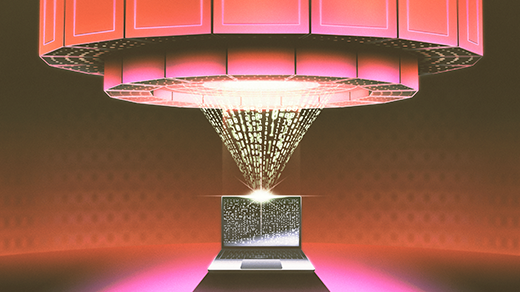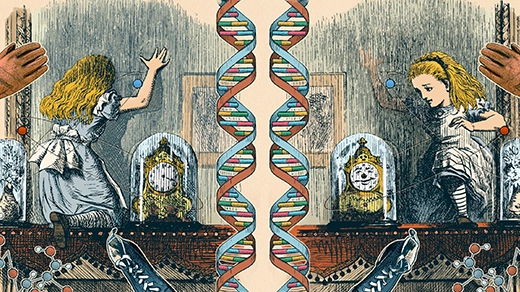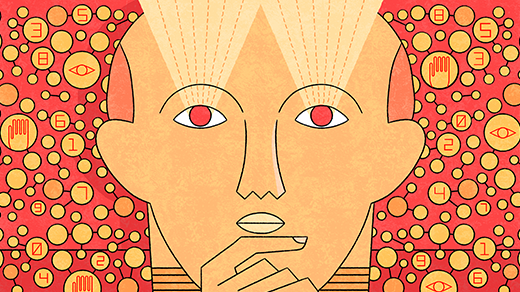What's up in
Explainers
Latest Articles
The Quantum Mechanics of Greenhouse Gases
Earth’s radiation can send some molecules spinning or vibrating, which is what makes them greenhouse gases. This infographic explains how relatively few heat-trapping molecules can have a planetary effect.
What Is the Fourier Transform?
Amid the chaos of revolutionary France, one man’s mathematical obsession gave way to a calculation that now underpins much of mathematics and physics. The calculation, called the Fourier transform, decomposes any function into its parts.
How Distillation Makes AI Models Smaller and Cheaper
Fundamental technique lets researchers use a big, expensive “teacher” model to train a “student” model for less.
Matter vs. Force: Why There Are Exactly Two Types of Particles
Every elementary particle falls into one of two categories. Collectivist bosons account for the forces that move us while individualist fermions keep our atoms from collapsing.
How the Universe Differs From Its Mirror Image
From living matter to molecules to elementary particles, the world is made of “chiral” objects that differ from their reflected forms.
Why Language Models Are So Hard To Understand
AI researchers are using techniques inspired by neuroscience to study how language models work — and to reveal how perplexing they can be.
How Can AI ID a Cat? An Illustrated Guide.
Neural networks power today’s AI boom. To understand them, all we need is a map, a cat and a few thousand dimensions.
What the Most Essential Terms in AI Really Mean
A simple primer to the 19 most important concepts in artificial intelligence.
How a Problem About Pigeons Powers Complexity Theory
When pigeons outnumber pigeonholes, some birds must double up. This obvious statement — and its inverse — have deep connections to many areas of math and computer science.








